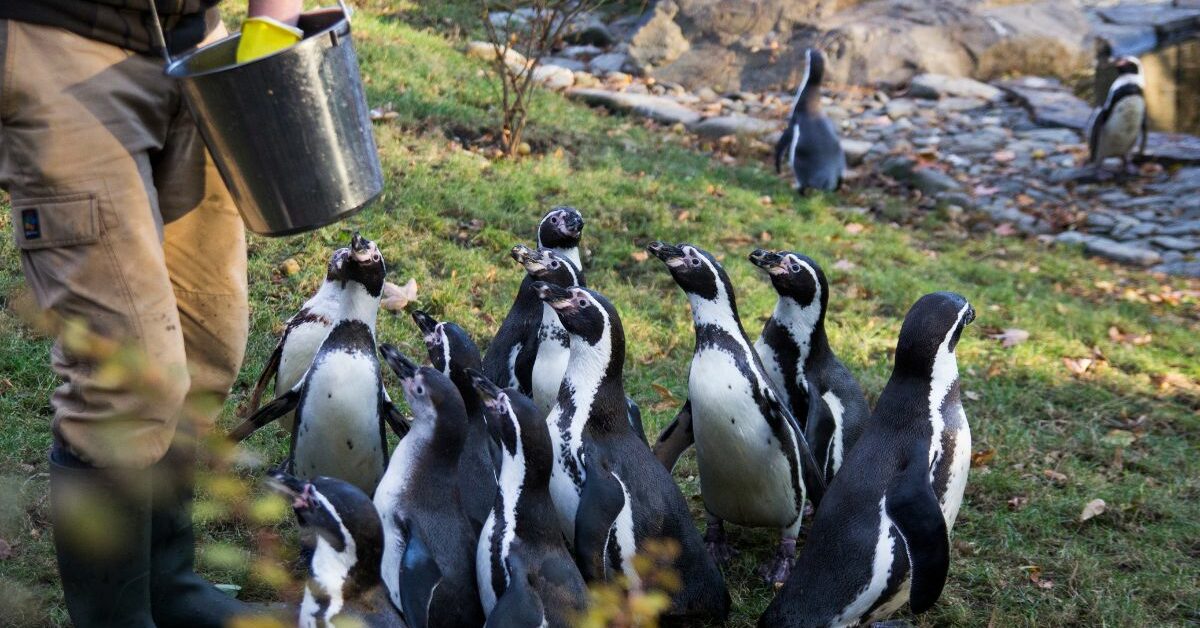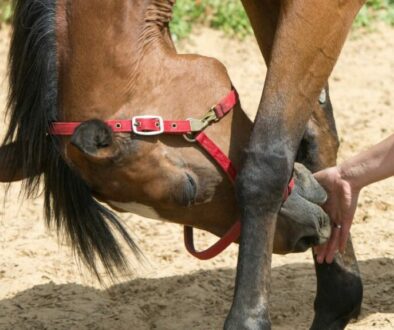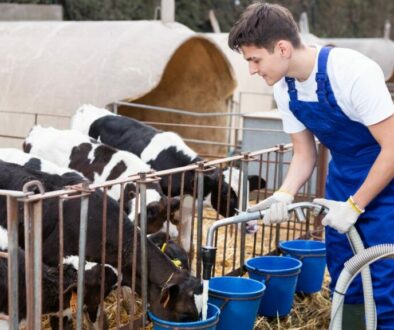How To Become A Zookeeper?
If you love animals and are looking for a career in which you can work with them, becoming a zookeeper can be a great choice. Zookeepers play a vital role in taking care of the animals in the zoo and ensuring that they are healthy and safe. In this article, we will look at the steps to becoming a zookeeper, the skills needed for the job, what a zookeeper is, and the benefits of working as a zookeeper.
Steps To Becoming A Zookeeper
Becoming a zookeeper can be a fulfilling career choice for those who have a passion for animals and their well-being. Zookeepers are responsible for taking care of animals in a zoo or a wildlife sanctuary. They ensure that the animals are healthy, well-fed, and have a clean living environment. If you are interested in becoming a zookeeper, here are the steps you need to take:
- Pursue a Bachelor’s Degree
The first step to becoming a zookeeper is to pursue a bachelor’s degree in a related field such as animal science, biology, or zoology. These degrees will provide you with the necessary knowledge and skills to understand animal behavior, their nutritional requirements, and their health needs. You can also pursue a degree in animal care or a related field that is offered by various institutes.
During your degree, you will study various subjects such as animal anatomy, physiology, and nutrition. You will also learn about the different species of animals and their habitats. This will give you a solid foundation to build your career as a zookeeper. - Gain Practical Experience
Volunteering or interning at a zoo or an animal sanctuary is also a great way to gain practical experience and learn more about the job. It will give you ample exposure to various species of animals and develop your animal handling skills. You can also attend workshops and conferences to stay up-to-date with the latest trends and developments in the field.
During your internship or volunteering, you will work under the supervision of experienced zookeepers. You will learn about the daily routines of the animals, their feeding habits, and their behavioral patterns. This experience will help you understand the challenges and rewards of working as a zookeeper. - Apply For Jobs
Once you have completed your degree or gained sufficient experience, you can start applying for jobs as a zookeeper. Most zoos require a minimum of a bachelor’s degree, along with relevant experience in animal care.
To explore job listings and requirements for zookeeper positions, check out the Association of Zoos and Aquariums (AZA Job Listings), which provides a comprehensive list of available positions across the USA.
In addition to traditional zoos, you may also want to explore opportunities at wildlife rehabilitation centers and sanctuaries. Websites like USAJOBS and Indeed can also provide access to government and private sector job openings in wildlife conservation and animal care.
When applying for jobs, highlight your academic achievements, practical experience, and any relevant certifications you may have. Make sure to tailor your resume and cover letter to the specific job you are applying for.
Becoming a zookeeper requires dedication, hard work, and a passion for animals. By following the steps outlined above, you can build a successful career as a zookeeper and contribute to the well-being of animals in captivity.
Skills Needed to Become a Zookeeper
In addition to these basic requirements, there are a few other skills that can set you apart as a standout zookeeper. One of these is a deep knowledge and understanding of animal behavior. This can be gained through hands-on experience working with animals, as well as through reading and research. For more theoretical knowledge about Animal behaviour, you can check out free resources like the Behavioral Research Blog or Nature Portfolio. Also, organizations like The Animal Behavior Society (ABS) promote the study of animal behavior and offer numerous resources, including conferences, publications, and networking opportunities.
Another important skill for a zookeeper is the ability to remain calm and focused in high-pressure situations. Whether dealing with a sick or injured animal, or managing a large crowd of visitors, a zookeeper must be able to stay calm and make quick decisions to ensure the safety of both animals and people.
Attention to detail is also crucial for a zookeeper, as even small oversights can have serious consequences. This includes everything from monitoring the health and wellbeing of individual animals to ensuring that enclosures are properly secured and maintained.
Finally, a passion for conservation and animal welfare is a must for anyone considering a career as a zookeeper. This means staying up-to-date on the latest research and best practices in animal care, as well as advocating for the protection and preservation of endangered species both in and outside of the zoo.
Overall, becoming a successful zookeeper requires a combination of education, skills, and personal qualities. With dedication and hard work, however, it can be a rewarding and fulfilling career for those who love animals and are committed to their care and wellbeing.
What is A Zookeeper?
A zookeeper is a professional who takes care of animals in a zoo or an animal park. The job typically involves feeding, cleaning, and providing medical care to animals, as well as ensuring their enclosures are clean and well-maintained. Zookeepers monitor animal behavior and report any changes to the veterinary team, ensuring the animals are kept in a healthy and safe environment.
However, the role of a zookeeper goes beyond just taking care of animals. They are also responsible for educating the public about the animals in the park and their habitats. This is an important aspect of their job as it helps to raise awareness about conservation efforts.
Zookeepers spend a lot of time observing animal behavior and learning about their natural habitats. This knowledge is then used to educate the public about the animals in the park and their natural habitats. They may give talks or presentations to visitors, or create educational materials such as brochures or signs.
Conservation efforts are also a key part of a zookeeper’s job. They work closely with other professionals in the field to develop and implement conservation programs. These programs may involve breeding endangered species in captivity, or working to protect habitats in the wild. Zookeepers may also participate in research projects to learn more about animal behavior and biology.
Another important aspect of a zookeeper’s role is to ensure that the animals in their care are happy and healthy. This involves providing them with a stimulating environment that meets their physical and psychological needs. Zookeepers may create enrichment activities for the animals, such as puzzles or toys, to keep them mentally stimulated.
Overall, being a zookeeper is a challenging and rewarding job. It requires a deep love and understanding of animals, as well as a commitment to public education and conservation efforts. If you are passionate about animals and want to make a difference in their lives, then a career as a zookeeper may be right for you.
The Benefits of Working as A Zookeeper
Working as a zookeeper can be an incredibly rewarding career choice, both financially and personally. According to Indeed, the average salary in the United States is around $42,733/year as of October 2024. Not only do zookeepers typically earn a competitive salary, but many zoos also offer benefits such as healthcare, retirement, and paid time off. These benefits can help provide job security and peace of mind for those who are passionate about working with animals.
One of the most significant benefits of working as a zookeeper is the opportunity to work closely with animals. As a zookeeper, you will have the chance to learn about different species and their unique behaviors, including their dietary needs, social structures, and natural habitats. This knowledge can be incredibly valuable, not only for your career but also for your personal growth and understanding of the natural world.
Working as a zookeeper can also be a fulfilling career choice for those who are passionate about animal welfare and conservation efforts. As a zookeeper, you will have the opportunity to contribute to the preservation of endangered species and educate the public about their importance. You may also have the chance to participate in breeding programs, which can help increase the population of endangered species and ensure their survival for future generations.
Another benefit of working as a zookeeper is the opportunity to work with a diverse group of people who share your passion for animals. You may work alongside veterinarians, biologists, and other professionals who are dedicated to animal welfare and conservation. This collaboration can help you learn from others and gain new perspectives on the work that you do.
While working as a zookeeper can be demanding, both physically and emotionally, the job offers great satisfaction and the opportunity to contribute to the care and conservation of wildlife. Becoming a zookeeper requires formal education, practical experience, and a passion for animals. If you are considering a career in animal care and conservation, working as a zookeeper may be an excellent choice for you.




